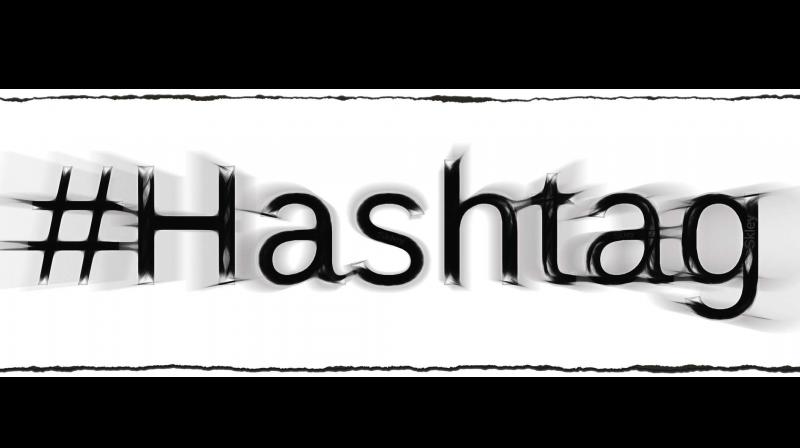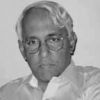The hashtag is a blot on the writing landscape

There’s a new blight, and blot, in town. As this piece is being tip-tapped on my keyboard, all I am hearing from the electronic media is Hashtag MeToo, Hashtag Sabarimala, Hashtag Rafale Deal, Hashtag CBI vs CBI, Hashtag Ranveer weds Deepika, blah, blah, blah. I am fully aware that I should be using the hashtag symbol on my keyboard rather than spelling the whole word out, but I refuse to do so in principle. Primarily on grounds of symbols like # completely ruining the look and feel of the written page which celebrates the eloquence of the written word. Note that I salute the word ‘written’ as opposed to ‘typed’ or ‘keyed’, a habitual genuflection. The hashtag symbol in particular, resembles a mosquito or a fly (I am not fussy), that accidentally landed on my page and was squashed summarily with a rolled up newspaper. The hashtag is an abomination, and it does not surprise me that it is used consistently by the media to flag sensations and scandals. There ought to be a law to exterminate it.
The blame for all this can be squarely placed at the door of social media, which is the feeder source for mainstream media. If it were not for the existence of Twitter and Facebook, with their Likes, Throbbing Hearts, Thumbs Ups and Downs, Emojis and Emoticons, all targeted towards folks with an attention span of less than ten seconds and a congenital inability to write or read a complete, grammatically correct sentence, using capital letters and proper punctuation marks. It’s all lower case and no full stops and commas for the indolent twittering twits, too much effort to depress the ‘shift’ key to generate the caps. I apologise for the acerbic vitriol, but people more qualified than I have commented on this with greater venom. Fat lot of good that’s done! The twitterati twit on regardless. Book publishers are bemoaning the declining sales of printed books over the past decade, though the number of people writing books is increasing by leaps and bounds. A strangely contrary state of affairs. We are moving into a bizarre situation presaging more writers than readers!
Some years ago, a study revealed that even where certain best-selling authors are concerned, a disturbing percentage of those who bought the books did so after a fashion. The books adorning their bookshelves were taken down a couple of times a year, dusted and cleaned, and carefully put back on the shelves. A periodic restoration job. If the author is a celebrity, his or her autograph on the flyleaf will be avidly sought, thereby enhancing the perceived value of the book. If a glitzy book launch is involved, then the mad scramble for selfies with the harried author is a given. Sadly, for the most part the book will remain pristinely unread. A mute testimony to one-upmanship and a craving for status symbols, the owner of the books wallowing among the great unwashed. Or unread.
Satirist and Man Booker awardee Howard Jacobson, in a recent article in The Guardian, encapsulates this modern day conundrum eloquently. ‘The infinite distractions of the Jumpin’ Jack Flash screen, so deceptively alluring compared to the nun-like stillness of the page, whose black marks you can neither scroll through nor delete. The brutalism of those means of expression, which the unironic internet has put at our disposal: our thumbs up/thumbs down culture in which everything is forgotten, discourse is reduced to statement, dramatic speech is inconceivable, words denote nothing but what is on our minds, writers are only as good as the side they’re on, and meaning is what we intend to mean’. In a nutshell, Mr. Jacobson makes the telling point that subtlety, irony and the power of suggestion is becoming increasingly scarce in a web driven, smart phone constricted, literal minded society. I give him a non-graphic thumbs up for that.
When I was growing up the word hash denoted several meanings. Colloquially, to hash things up was to ruin everything. Hash browns meant delicious, shredded, pan-fried potatoes one had for breakfast, to go with toast, eggs, bacon and so on. Of course, if it was idly, dosa or paratha that was your daily morning fix, then you are unlikely to have experienced the joys of hash browns. The masala dosa does have its spiced mashed potato filling, but mashed is not the same as hashed. Who knows, if I come across one of those cookery channels on the telly, I could be looking at Hashtag Hash Browns, or Hashtag Rava Upma, and the panelists going hammer and tongs at each other, hashing it up with plenty of tongue lashing. The drooling frenzy, doubtless whipped up by the mouth-watering fare the television cameras lovingly capture.
To conclude, the hashtag does nothing to elevate the tenor of the debate. Barring allowing viewers to keep tweeting their inanities to add to the already puerile exchanges, and the channel installing a dynamic electronic graphic counter that keeps telling us how many tens of thousands of viewers are sending in their responses, and therefore how wonderful the quality of the televised debate must be, and why that particular channel has one million percent more viewers than their nearest, sad sack rival. Truth to tell, it’s a cross between the floor of Dalal Street and a smelly fish market. About that viewing counter the channels flaunt, is it not plausible that this gizmo could easily be doctored? Rather like the old taxi meter cabs, which would madly jump from '10.50 to '37.50, when you took your eyes off it for a nano second. Amazon’s Jeff Bezos recently banned the use of Power Point presentations in his company, instead exhorting his colleagues to resort to the conventional typed up narrative memos. No darkened rooms, no faceless, disembodied voices and above all, no hashtags and symbols! Nowhere to hide. Way to go, Jeff!

